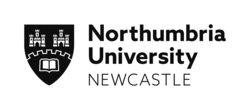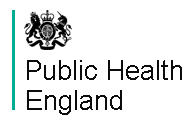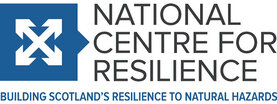United Kingdom
 |
Disaster Management Centre
|
| Outline Bournemouth University Disaster Management Centre (BUDMC) is a leading national and international centre on crisis and disaster management in the UK, and a fully designated Research, Knowledge and Enterprise (RKE) centre of Bournemouth University. Established since 2001, the Centre has secured an international reputation for its work in research informed (R) knowledge (K), enterprise and professional practice delivery (E), with a particular international renown for excellence for 'in country' knowledge transfer. The Centre's has achieved major success in securing research informed professional practice contracts in Oman, Ghana, Nepal, Turkey, Sierra Leone, Croatia, Sri Lanka and Nigeria, complemented by UK contracts that are regularly delivered to the Foreign and Commonwealth Office, and also include innovative market operations with the UK Independent School sector. The Centre also works closely with the private sector both in the UK and abroad. [detail] --> |
|
 |
British Geological Survey
|
| Outline The British Geological Survey is a world-leading geological survey. It focuses on public-good science for government, and research to understand earth and environmental processes. It is the UK's premier provider of objective and authoritative geoscientific data, information and knowledge to help society to:
The British Geological Survey is a part of the Natural Environment Research Council (NERC) and is its principal supplier of national capability in geoscience. It advances understanding of the structure, properties and processes of the solid Earth system through interdisciplinary surveys, monitoring and research for the benefit of society. It is the UK's premier provider of objective and authoritative geoscientific data, information and knowledge for wealth creation, sustainable use of natural resources, reducing risk and living with the impacts of environmental change. We are a world-leading geoscience centre for:
[detail] --> |
|
 |
Cabot Institute, University of BristolBristol |
| Outline The Cabot Institute, the University of Bristol's first flagship cross-disciplinary research institute, conducts world-leading research on the challenges arising from how we live with, depend on and affect our planet. It is rooted in a recognition of social and environmental challenges but inspired by the spirit of exploration personified by John Cabot (Zuan Caboto) and the City of Bristol. Our main themes focus on the six major issues at the centre of the human-planetary relationship: global environmental change, food, waterand energy security, natural hazards and future cities and communities. Each of these Themes comprises dozens of academics from disciplines spanning the entire university and partners from government, industry, civil organisations and the public. Within each Theme we harness world-leading strength in risk and uncertainty assessment, modelling and big data analysis (underpinned by £4M investment in high performance computing), and expertise in knowledge co-production, security and governance. Crucially, the Cabot Institute brings these Themes - each vibrant in its own right - together. These are strongly interconnected challenges; and interconnected challenges require integrated solutions. The inclusion of a Future Cities theme is a unique feature of the Cabot Institute, arising from our strong partnership with the city of Bristol (European Green Capital 2015) and a recognition that addressing global environmental challenges must be based on a robust understanding of how we live. [detail] --> |
|
 |
|
| Outline Those affected by, or at risk of, disasters and conflict have a right to receive humanitarian aid or disaster risk reduction support in the most timely, effective and appropriate way possible. To achieve this we need to know what works and what doesn't, and to ensure our actions and decisions are based on evidence. Evidence Aid aims to inspire and enable those guiding the humanitarian and DRR sectors to apply an evidence-based approach in their activities and decisions. We will stimulate and satisfy an increasing demand for evidence related to health outcomes, to improve the impact of humanitarian and DRR aid and contribute to a humanitarian and DRR sector where the evidence based approach will be used when and where appropriate. Evidence Aid has successfully engaged in seven systematic reviews for the World Health Organization (details on request), a priority setting exercise (http://currents.plos.org/disasters/article/dis-13-0023-prioritization-of-themes-and-research-questions-for-health-outcomes-in-natural-disasters-humanitarian-crises-or-other-major-healthcare-emergencies/) and a Delphi study (http://www.evidenceaid.org/wp-content/uploads/2013/01/Report-of-Round-1-of-Policy-Delphi-2016-08-22-FINAL1.pdf). In collaboration with Virginia Murray, Evidence Aid successfully co-organised a side event during the UNISDR Science and Technology Conference on the Implementation of the Sendai Framework for Disaster Risk Reduction, addressing issues around evidence dissemination and publication. Afterwards Evidence Aid became a Sendai Framework Science and Technology partner to ensure continuing engagement. For 3ie (International Initiative for Impact Evaluation - http://www.3ieimpact.org/en/), Evidence Aid founder Mike Clarke, contributed to a scoping study to analyse the evidence base of evaluations in humanitarian assistance (http://www.3ieimpact.org/en/publications/3ie-scoping-paper-series/3ie-scoping-paper-1/). All these activities somehow contribute of a more evidence based approach, but not all are convinced this is needed or the best way forward. Evidence Aid will continue to try to convince people that there is a need for more robust evidence and advocate for a more evidence based approach to DRR. [detail] --> |
|
Dumfries |
|
| Outline The University of Glasgow, National Centre for Resilience (NCR) is an academic research hub, using evidence to inform policy and practice. It bridges the gap between academia, policy and practice by promoting cross sector partnerships, encouraging each to learn from the other to improve resilience when planning for, responding to and recovering from natural hazard events in Scotland. The NCR utilises existing knowledge, commissions demand led research projects and funds practical projects to address real life issues faced by resilience practitioners and communities. Using its networks, it creates links for researchers to help them adapt their project outputs into tailored briefings and tools for end users and then maximises the potential use and impacts of this work by disseminating research outputs. [detail] --> |
|
 |
Global Disaster Resilience Centre (GDRC)
|
| Outline What would it be like to live in a world in which government authorities, businesses, communities and individuals work together to create a society that is able to withstand the effects of unforeseen events and threats? At the Global Disaster Resilience Centre we are working with stakeholders at the global, national and local level to make this happen. The Global Disaster Resilience Centre is committed to excellence in research, education and advocacy to improve the resilience of nations and communities to disasters. With growing population and infrastructures, the world's exposure to hazards is increasing. When disaster strikes, communities may need to be rebuilt physically economically and socially. At the same time, it is vital that any reconstruction activity pro-actively considers how to protect people and their environment, and reduce a community's vulnerability. The Global Disaster Resilience Centre is part of the School of Art, Design and Architecture at the University of Huddersfield in the UK. In November 2013, the University of Huddersfield was awarded the Times Higher Education University of the Year. The University excels in enterprise and innovation and in 2012, was named the Times Higher Education Entrepreneurial University of the Year. We:
[detail] --> |
|
School of Business, Dept. Management, Innovation and Technology Division, University of LeicesterLeicester |
|
| Outline The University of Leicester School of Business is a global academy for leaders, innovators and change-makers. Building on over 90 years of delivering business education, we are internationally renowned for our courses in accounting and finance, management, marketing and economics. Reflecting the pioneering work we conduct in partnership with leaders, managers and organisations to promote responsible business practice, we are ranked 14th in the UK for research power. |
|
 |
Institute for Risk and Disaster Reduction (IRDR)
|
| Outline Reducing the impact of disasters globally presents a colossal challenge that requires coordinated and collaborative action. The UCL Institute for Risk and Disaster Reduction (IRDR) brings together the wealth of knowledge and expertise across the university, and through research, teaching, public engagement and knowledge exchange aims to improve the understanding of risk and overcome the barriers to increasing resilience to disasters. Natural hazards such as earthquakes, volcanic eruptions, tsunami, floods and storms destroy lives and damage economies across the globe; pandemics have the potential to bring death and suffering on an unprecedented scale; while climate change may increase the severity of both natural and health disasters. How society sees risk, how to link understanding of the causative mechanics to statistical approaches, and how to increase resilience and reduce the risk of disasters are common themes cutting across research in natural, environmental, health and technological hazards. UCL is uniquely well-placed to lead research and teaching in risk and disaster reduction, with at least 70 academics across 12 departments and seven faculties involved in world-class research and practice in the field. The IRDR, with its new academic staff, many jointly appointed with key UCL departments, its rapidly growing trans-disciplinary PhD research centre, integrative masters teaching, programme of public events and partnerships with humanitarian, financial, research and civil protection organisations, seeks to bring together this diverse expertise at UCL. We aim to maximise the impact and value of UCL activities and to increase and enhance cross-disciplinary collaboration and cooperation globally. We are part of the UCL Grand Challenges of Global Health, Sustainable Cities, Intercultural Interaction and Human Wellbeing. [detail] --> |
|
 |
Water Engineering and Development Centre (WEDC)Loughborough University
|
| Outline The Water Engineering and Development Centre (WEDC) is a globally leading research group that undertakes high-calibre and creative multidisciplinary research and provides high quality, research-led education and training for the next generation of professionals and leaders to tackle global challenges in the broad field of water engineering and development. Founded more than 50 years ago to address the issues of providing safe water and sanitation in low- and middle-income countries, WEDC has grown to face the common challenges of water engineering in both developed and developing countries, including water quality and security, water hazards and risk resilience, hydrodynamics, fluvial processes and catchment management. [detail] --> |
|
 |
Disaster and Development Network (DDN)
|
| Outline The Disaster and Development Network (DDN) aims to develop through research, teaching and learning, the knowledge and skills to address hazards, disasters and complex emergencies from the perspective of different development debates and experience. The Network undertakes research, teaching and learning activities that encompass disaster reduction, sustainable development and resilience building. By necessity an inter-disciplinary field of inquiry, disaster and development studies address human security and wellbeing for individuals, groups and institutions in contexts of current and potential crises. [detail] --> |
|
 |
Overseas Development Institute
|
| Outline The Overseas Development Institute (ODI) is a leading independent think tank on international development and humanitarian issues. Our mission is to inspire and inform policy and practice which lead to the reduction of poverty, the alleviation of suffering and the achievement of sustainable livelihoods in developing countries.
[detail] --> |
|
 |
Public Health England
|
| Outline We are an executive agency of the UK Department of Health, and a distinct delivery organisation with operational autonomy to advise and support the government, local authorities and the NHS in a professionally independent manner. We employ 5,500 staff (full-time equivalent), mostly scientists, researchers and public health professionals. We have 8 local centres, plus an integrated region and centre for London, and 4 regions (north of England, south of England, Midlands and east of England, and London). We work closely with public health professionals in Wales, Scotland and Northern Ireland, and internationally. Public Health England was established on 1 April 2013 to bring together public health specialists from more than 70 organisations into a single public health service. PHE's research within disaster risk reduction aims to ensure public health and science has a prominent role in the Sendai framework. To achieve this, PHE regularly conducts robust, evidence-based research into disaster risk reduction. PHE is an executive agency, sponsored by the Department of Health. [detail] --> |
|
 |
Swansea University
|
| Outline Swansea University is a research-led university that has been making a difference since 1920. The University community thrives on exploration and discovery, and offers the right balance of excellent teaching and research, matched by an enviable quality of life. The University has enjoyed a period of tremendous growth, and we have achieved our ambition to be a top thirty research University, soaring up the 2014 Research Excellence Framework league table to 26th in the UK from 52nd in 2008. Additionally, an ambitious Campus Development Programme is well underway - one of the largest knowledge economy projects in the UK and within the top five in Europe. It involves the creation of the Bay Campus, a brand new £450 million development on the eastern approach to the city, together with the transformation of our existing Singleton Park Campus. Swansea's multicultural dual-campus community provides a global perspective and opportunities to gain skills that last a lifetime. True to the vision of its industrial founders in 1920 Swansea University will: Provide an environment of research excellence, with research that is world-leading, globally collaborative and internationally recognised; Deliver an outstanding student experience, with research-led and practice-driven teaching of the highest quality that produces global graduates educated and equipped for distinguished personal and professional achievement; Use its research strength, collaboration with industry and global reach, to drive economic growth, foster prosperity, enrich the community and cultural life of Wales and, contribute to the health, leisure and wellbeing of its citizens. You can also read more about the University's history, ambitions, and management. [detail] --> |
|
 |
Centre for Disaster Resilience, University of Salford
|
| Outline Our aim is to be a global leader in built environment research and education that develops societal resilience to disasters. Within this holistic societal goal lies a more specific community objective of building resilience and adaptation measures. In achieving this aim the centre's strategy is to focus on the strengths of the existing multidisciplinary membership, our portfolio of funded research projects, our existing postgraduate research community and our national and international collaborative partners. RESEARCH TOPICS
CDR has led and contributed to a wide range of projects within the broad theme of disaster resilience:
[detail] --> |
|







